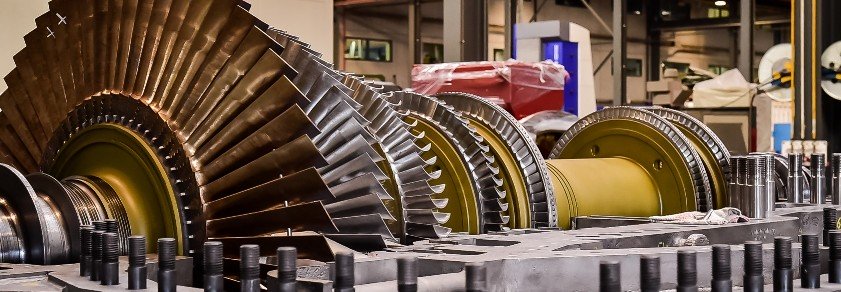31. The pressure of steam __________ while flowing through a nozzle.
A. increases
B. decreases
C. remains constant
32. The process of maintaining the speed of the turbine constant for various load conditions is known as
A. bleeding
B. reheating
C. governing
D. none of these
33. Reheating of steam in a turbine
A. increases the workdone through the turbine
B. increases the efficiency of the turbine
C. reduces wear on the blades
D. all of these
34. Which of the following statement is correct for steam turbines as compared to reciprocating steam engines?
A. A steam turbine develops higher speeds
B. The efficiency of steam turbine is higher
C. The steam consumption is less
D. all of these
35. The density of supersaturated steam is about __________ that of the ordinary saturated vapor at the corresponding pressure.
A. same as
B. 2 times
C. 4 times
D. 8 times
36. The ratio of the workdone on the blades per kg of steam to the total energy supplied per stage per kg of steam is called
A. blading efficiency
B. nozzle efficiency
C. stage efficiency
D. mechanical efficiency
37. The diagram efficiency is the ratio of
A. workdone on the blades to the energy supplied to the blades
B. workdone on the blades per kg of steam to the total energy supplied per stage per kg of steam
C. energy supplied to the blades per kg of steam to the total energy supplied per stage per kg of steam
D. none of the above
38. The Rankine efficiency depends upon total useful heat drop and total isentropic heat drop.
A. Correct
B. Incorrect
39. Blading efficiency is also known as
A. stage efficiency
B. diagram efficiency
C. nozzle efficiency
D. none of these
40. The pressure of steam, in reaction turbines, is reduced in the fixed blades as well as in moving blades.
A. Correct
B. Incorrect
